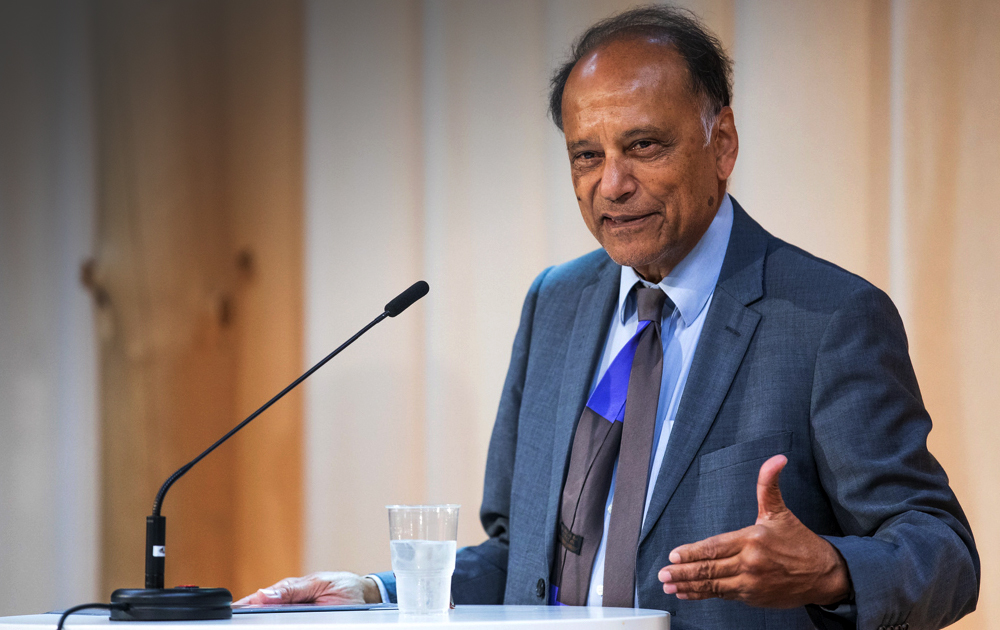 The newest SEC staff interpretation relating to shareholder proposals is poised to make it easier for ESG issues to get onto the ballot at company annual meetings. Investors should take steps to put issues of gender and diversity front and center. While terms like “diversity,” “inclusion,” and “gender lens investing” are becoming part of corporate and investing vocabulary, implementation of the values for which those concepts stand is far from complete.
The newest SEC staff interpretation relating to shareholder proposals is poised to make it easier for ESG issues to get onto the ballot at company annual meetings. Investors should take steps to put issues of gender and diversity front and center. While terms like “diversity,” “inclusion,” and “gender lens investing” are becoming part of corporate and investing vocabulary, implementation of the values for which those concepts stand is far from complete.
When I left the staff of the SEC over three decades ago and began working in the field of responsible investing and shareholder advocacy, board diversity was one of the positive screens being applied to potential investments. Yet 30+ years hence, notwithstanding progress, there is still much to be done. In those early days, the SEC viewed ESG-related shareholder proposals as having broad social significance meriting inclusion in a company\’s proxy statement. The courts, however, construed the issue more narrowly, stating that the timing for implementing policy decisions was an internal management issue not meriting shareholder attention.
The SEC division staff\’s recent announcement heralded a return to a practice that will help keep companies from excluding ESG shareholder proposals. This is a positive development in the quest to move companies towards elevating a diverse group of women to senior positions. Imposing reasonable deadlines for implementation should be part of those proposals.
My first shareholder rights case after leaving the SEC staff was a 1991 appeal from Du Pont\’s intent to exclude from its proxy statement a proposal to advance the date by which the company proposed to phase out production of chlorofluorocarbons (“CFCs”) and halons. The proponent was Amelia Roosevelt, and Friends of the Earth submitted the proposal to Du Pont on her behalf. The company had committed to phasing out production, but Ms. Roosevelt asked that Du Pont do so several years sooner because those chemicals were “destroying the Earth\’s protective ozone layer at an alarming rate.”
I represented Calvert Social Investment Fund, the Comptroller of the City of New York, and the New York City Pension Funds in the court of appeals as amici curiae — “friends of the court.” The SEC joined the case as amicus, also in support of timing being a critical issue not subject to exclusion from the proxy statement. But climate change was not yet viewed with the urgency it has now been proven to be, and the court disagreed that timing merited shareholder consideration. Nevertheless, prior to the ruling Du Pont agreed to advance the date for phasing out production. Ms. Roosevelt\’s case had forced the issue, and the mission was accomplished, but the larger issue of whether shareholders should be able to weigh in on timing on implementing ESG issues still loomed.
As we now know, climate change is indeed a critical issue not simply within the realm of “ordinary business operations,” and it is possible that a court today would reach a different conclusion on the timing issue. Likewise, given the failure of companies to diversify with any sense of urgency, timing should also be considered outside the realm of the day-to-day decision-making of management. Future shareholder requests for corporate action on diversity should make clear that adopting policies without specific timelines for action will not suffice.
In taking up the mantle, we can be inspired by the fact that women like Amelia Roosevelt were among the earliest individual investors at the forefront of shareholder advocacy, long before it became the norm for institutional shareholders to mobilize their assets for good. Gender lens investors should strive to continue the legacy of those women.
In 1947, Wilma Soss, a public relations specialist, proposed to U.S. Steel that the company appoint a woman to the board. She garnered some 10,000 votes in support of her resolution, but her efforts were rebuffed by U.S. Steel and by other companies that she subsequently approached with her “radical” idea. In 1950 she submitted a resolution to American Radiator and Standard Sanitary proposing that installing a woman on the board with industry expertise would both represent women\’s interests and improve R&D. Her efforts, along with those of several contemporaries, have been credited with providing a framework for later advocacy efforts, including those of the Interfaith Council for Corporate Responsibility (ICCR) and the Council of Institutional Investors (CII).1
Shortly thereafter came Evelyn Davis, the self-monikered “Queen of the Corporate Jungle” — a phrase she inscribed on her tombstone long before she passed away — who owned stock in some 86 companies and who raised important issues at shareholder meetings for more than 50 years starting in 1959.2 She reportedly showed up to 30-40 shareholder meetings a year in order to state her case for corporate accountability.3 While some have criticized her approach as unnecessarily abrasive, her impact is undeniable.
In the continuing annals of shareholder advocacy, the bulletin recently issued by the SEC\’s Division of Corporation Finance4 is significant because it announced the staff\’s intent to return to the longstanding official SEC policy relating to the “ordinary business” exclusion. Specifically, if a shareholder\’s proposal raises an issue of broad social significance, it will not be deemed “ordinary business,” and the company will be compelled to include the proposal in its proxy statement.
The new guidance reverses positions announced in recent years5 that tended to focus the staff\’s analysis on individual company operations rather than on the broader social significance of the concerns being raised by shareholders in their proposals. The prior bulletins imposed burdensome requirements, such as requiring the board to provide an analysis, which often skewed the staff\’s conclusion. The prior guidance also led to proposals being improperly excluded as having been “substantially implemented” under the guise of “micromanagement.”
The impact of the recently-announced change cannot be overstated. While the change might be viewed as part of an ongoing swing of the pendulum regarding staff review of shareholder proposals, we are at a point where issues such as diversity are ripe to pursue. Women have been at the forefront of shareholder advocacy, and should continue to take the lead to ensure that future generations of women are always at the table.
Article by Beth-ann Roth, a Certified Corporate Governance Professional® and shareholder of R|K Invest Law, PBC, a Public Benefit Corporation law firm. She counsels on SEC defense, ESG compliance and shareholder advocacy, and on the regulation and business of importing organic, biodynamic, vegan and fair trade wine, beer and spirits. She recently contributed four chapters to the American Bar Association\’s 2021 volume entitled “ESG: A Guidebook for Directors.” She serves on the US|SIF Policy Council, and on the Organic Trade Association\’s Climate Change Task Force.
Ms. Roth is also President of ESG Legal Services, a 501(c)(3) public interest law firm that protects unaccompanied minor children from deportation and provides nonprofit and shareholder advocacy services. ESG recently launched the Corporate-Shareholder Communications Initiative to establish a legal framework for non-adversarial dialogue outside the shareholder proposal process. She serves as pro bono general counsel to Die Jim Crow, a non-profit record label giving voice to fighting racial injustice in the US prison system, and to PalTechUS, an organization mobilizing the Palestinian diaspora to create professional opportunities for young STEM professionals.
Ms. Roth was previously an appellate litigator in the Office of the General Counsel at the SEC, and then joined the rulemaking section of the Division of Corporation Finance. After serving as a lobbyist, she joined the Calvert family of responsible mutual funds, and was concurrently the first lawyer for Calvert Impact Capital, helping to launch the organization that has since mobilized $2.5 billion of investor capital. She was with the law firms of Katten Muchin Rosenman and Dechert, served as counsel to IFESH and Rev. Leon H. Sullivan (author of The Sullivan Principles) on impact investing initiatives both domestically and in Africa, and later served as Deputy General Counsel for FINCA International, providing microfinance services and overseeing legal operations in 21 countries.
[1] R. Marens, “Inventing Corporate Governance: The Mid-Century Emergence of Shareholder Activism,” Journal of Business and Management Vol. 8, No. 4 365 (Fall 2002) at 367, 371, 374 and 376.
[2] E. Flitter, “Evelyn Y. Davis, Shareholder Scourge of C.E.O.s, Dies at 89. Washington Post (Nov. 7. 2018). “Evelyn Davis, Known as Corporate Gadfly, Dies at 89. Reuters (Nov. 5, 2018).
[3] L. Bennetts, “The C.E.O.\’s Worst Nightmare.” Vanity Fair (Jul. 1, 2002).
[4] Division of Corporation Finance Staff Legal Bulletin No. 14L (Nov. 3, 2021).
[5] Division of Corporation Finance Staff Legal Bulletin No. 14L reversed Nos. 14I (2017), 14J (2018) and 14K (2019).

















